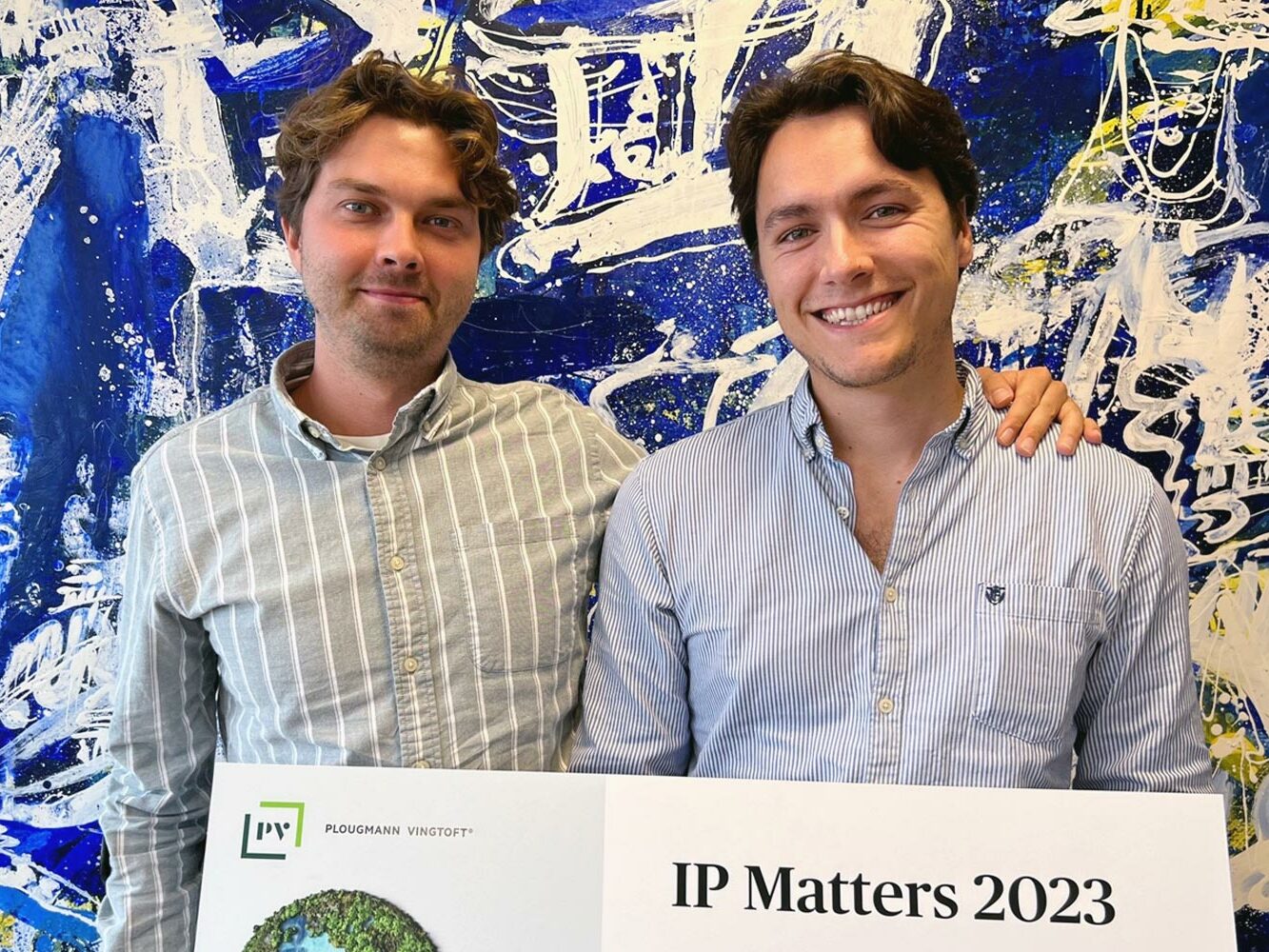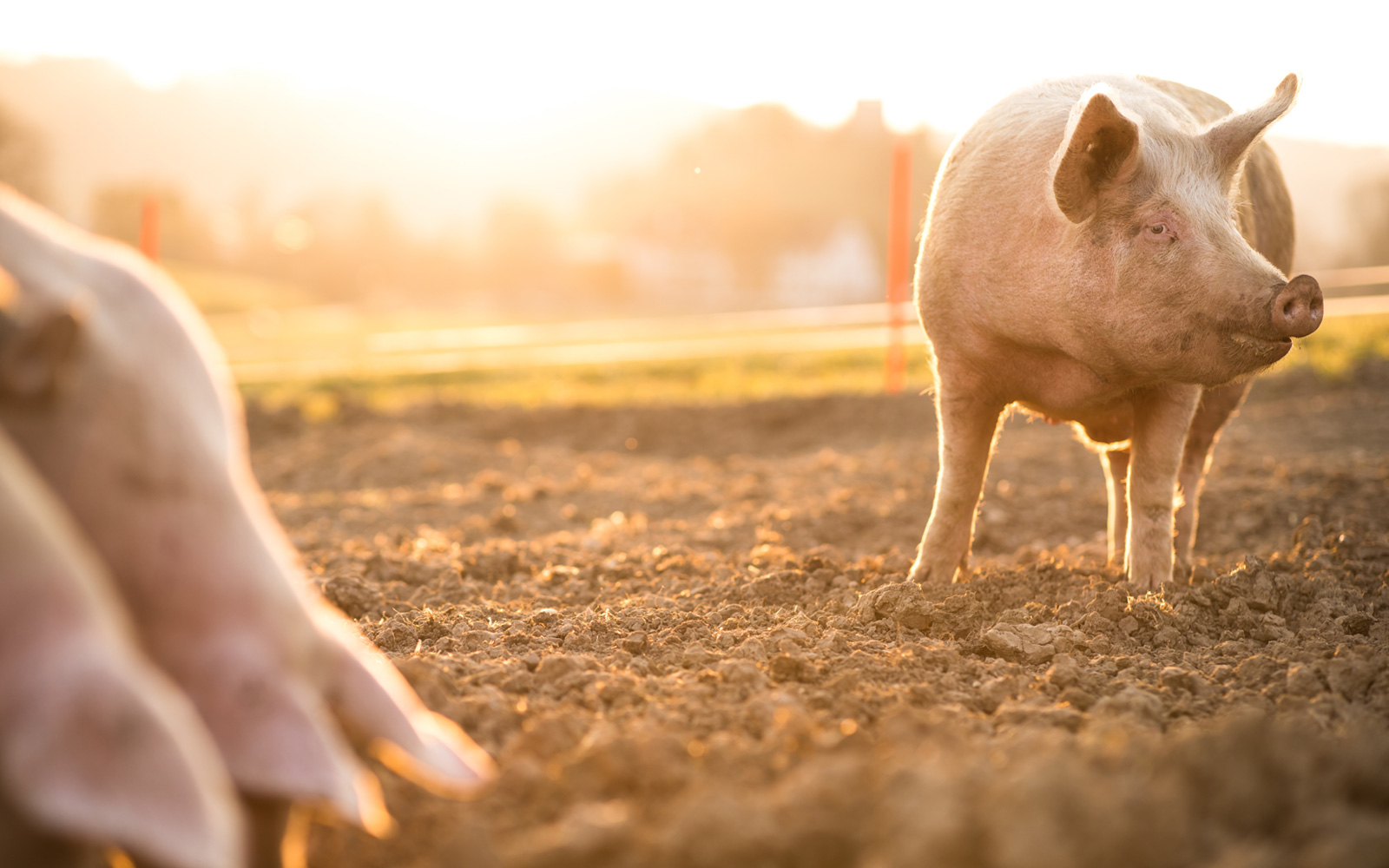In the future, your hamburger may be grown in a laboratory. The Danish biotech startup Meat Tomorrow has developed a technology using stem cells from live animals to produce large quantities of meat in steel tanks like those you would find in a brewery.
The first lab-grown burger was created by Professor Mark Post from the University of Maastricht in 2013. Producing the burger costed €250,000 and took more than three months. Let’s just say it didn’t become a supermarket bestseller.
Ever since, the global meat consumption has been steadily increasing. And so has the negative climate impact of meat production.
We urgently need greener alternatives to conventional meat production. But even though many people have experimented with so-called cultured meat – i.e. meat grown in a laboratory – the solutions have not been sufficiently scalable.
Until now.
Meet Meat Tomorrow
In 2021, fellow students David Valbjørn and Mathias Ankjær formed an idea. Inspired by medical stem cell research and a strong interest in climate challenges, they asked themselves:
Could we use stem cells to grow large quantities of meat in steel tanks?
After several strenuous attempts to develop a technology that makes the impossible possible, the future is looking bright. Their innovative technology is the focal point of the biotech company Meat Tomorrow, securing David and Mathias Plougmann Vingtoft’s IP Matters donation in 2023.

“We realised that cultured meat was a technology yet to be fully developed, and we could be among the first while making a positive contribution to the green transition. It was the perfect blend of everything we wanted to work with,” says David Valbjørn, co-founder and CEO of Meat Tomorrow.
According to calculations by the Swedish research institute CE Delft, cultured meat can reduce CO2 emissions by 52 % and land use by 72 % compared to conventional meat production.
The potential of stem cells
With Meat Tomorrow’s technology, just a few stem cells from a living animal can grow into several tons of meat in a laboratory. Stem cells are pluripotent cells, which means they have the potential to develop into any type of cell.
The groundbreaking aspect of Meat Tomorrow’s technology is the use of a number of signalling molecules to stabilize the liquid stem cells at their pluripotent stage.
“The technology must be scalable for us to produce meat in quantity. At the pluripotent stage, the cell division speed peaks. By stabilizing the cells at that stage, we can produce meat faster,” explains David Valbjørn.
Only when Meat Tomorrow has gained a sufficiently large mass do they differentiate the stem cells into muscles, fat, etc. In this way, they can control the precise composition of meat and fat in the finished product.
Expert help with IP protection was a most welcomed opportunity
David and Mathias knew right from the start that their technology had to be patented to protect the technology and to attract venture capital. The challenge was to allocate funds for patent consulting. Plougmann Vingtoft’s IP Matters donation came as an great opportunity:
“Our operating costs are very high because we have to rent laboratories. Fortunately, we have been successful in our efforts to secure funding, but we much prefer to put that money towards research. So it made sense for us to apply for the IP Matters donation,” says David Valbjørn.
David and Mathias, together with their experienced co-founders, Henning Kempf and Jonathan Niclis, mapped existing patents in their field. And they monitored developments, which enabled them to keep abreast of any new patents that required them to adjust their own technology. But they knew they needed expert help with the actual patenting.
Plougmann Vingtoft’s patent attorneys are experts and discover things we haven’t found. You may not be aware that certain parts of the technology can be patented. It is worth every penny to minimize the risk of patent errors, and you can only do that by bringing in experts
David Valbjørn, co-founder of Meat Tomorrow
He and the other co-founders appreciate not having to waste time explaining the technology, as their advisors at Plougmann Vingtoft have a biotech background themselves.
“They have a thorough understanding of the underlying principles of the technology, and we can delve into the deeper technical aspects without a ton of explanations. This makes it much easier for us,” says David Valbjørn.
Patenting: A great exercise for any start-up
Even with experts on hand, the patenting process was complex, and it took Meat Tomorrow almost a year to gather the right data.
“But it is also a great exercise for the company, because you gain an overall picture of the technology you’ve developed. It is a reminder of how far we have come. I think this is a good exercise for any start-up,” David Valbjørn concludes.

About Meat Tomorrow
Company: Meat Tomorrow ApS
Founded: 2021
Founded by: David Valbjørn, Mathias Ankjær, Henning Kempf and Jonathan Niclis.
Innovation: Technology to cultivate large quantities of meat from stem cells.
UN Sustainable Development Goals: #12: Responsible consumption and production, #13: Climate action, #15: Life on land, and, indirectly, #14 Life below water.
Photo credits: Adobe Stock
What is IP Matters?
Every year until 2023, Plougmann Vingtoft will donate IP consultancy worth DKK 50,000 to Danish start-ups that we believe may affect one or more of the UN’s 17 Sustainable Development Goals.
Together with the entrepreneurial network Danish Business Angels (DanBAN), we select a winner with a convincing vision for a sustainable future. A company that can make the most of our knowledge of IP rights and our advice on business development.
The companies that receive the IP Matters donation will have access to a team of handpicked IP experts who have subject-specific knowledge within the business area in question.
Meet our experts here.